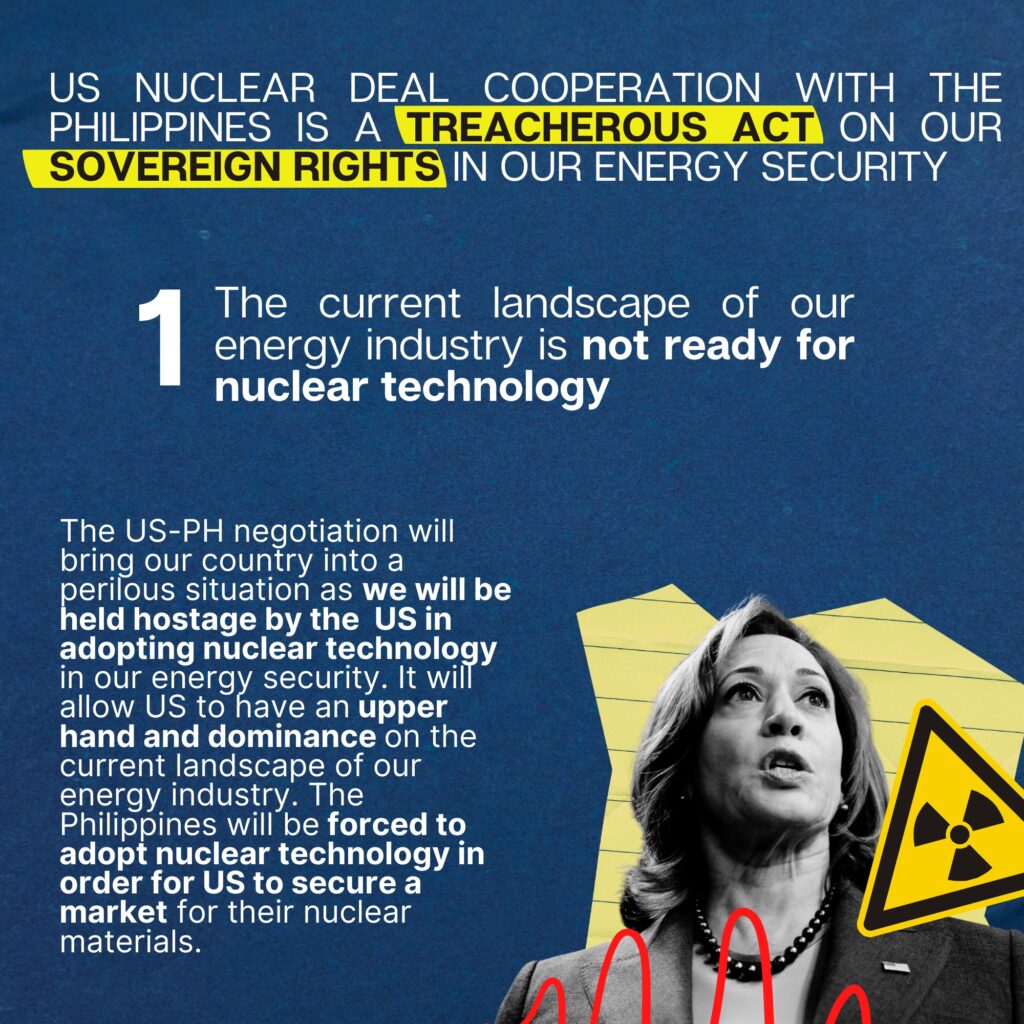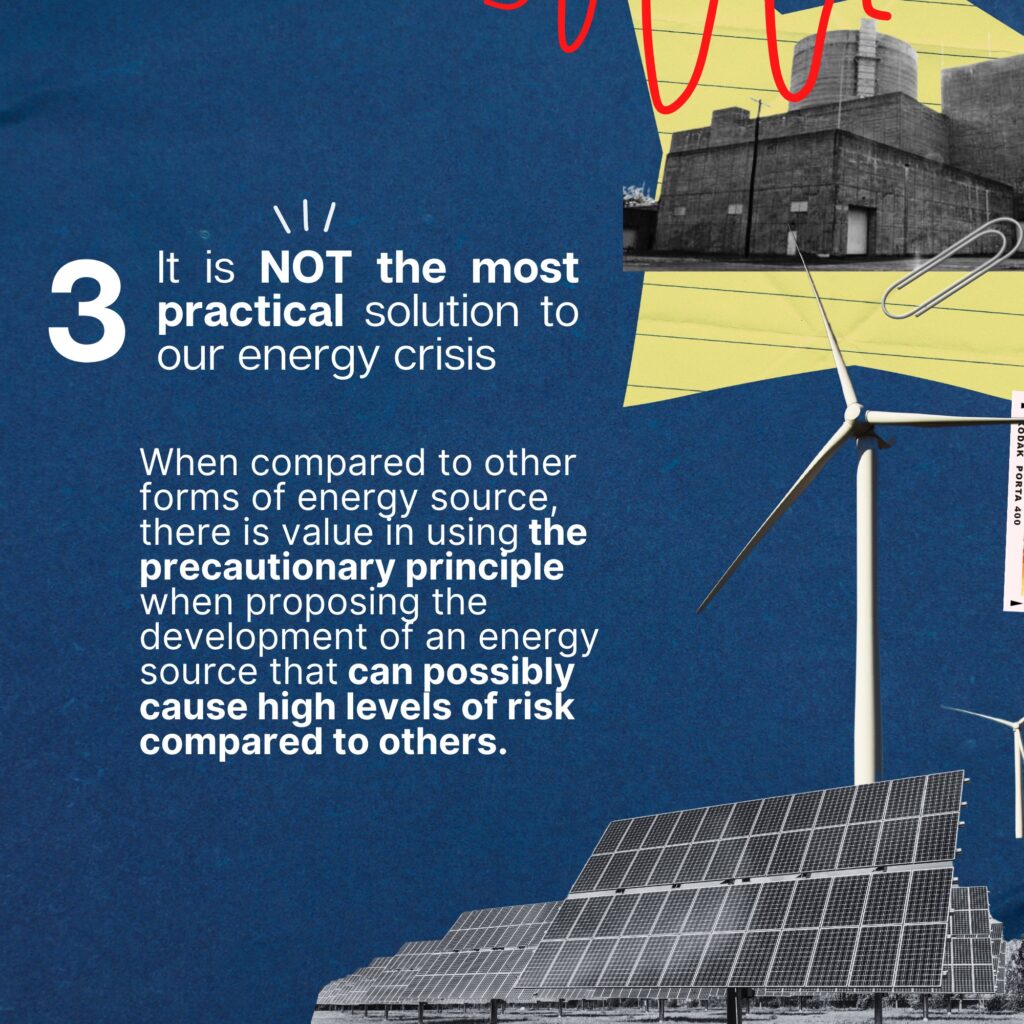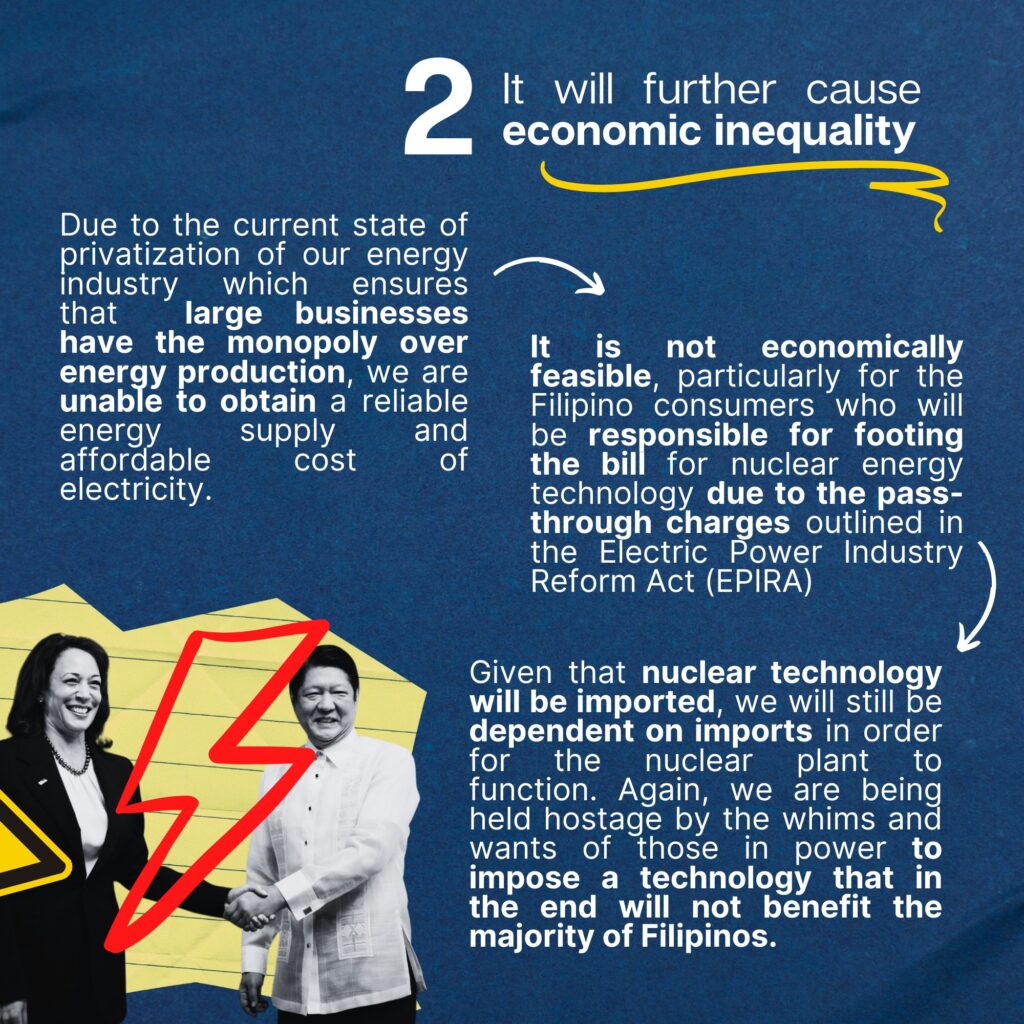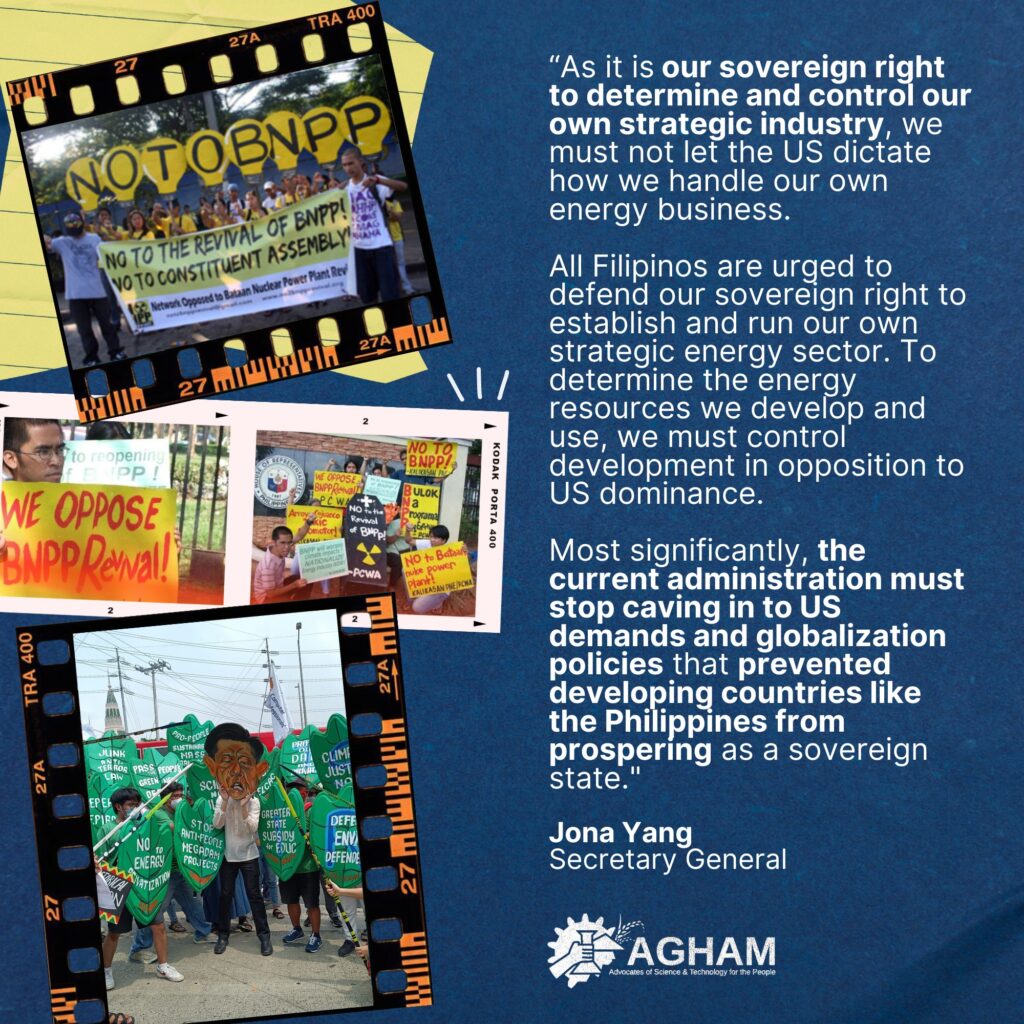AGHAM opposes the plans of the United States and Philippine governments to pursue a civil nuclear cooperation deal as announced by US Vice President Kamala Harris in her recent visit to the country. In her statement, she expresses the support of the US government to the country’s nuclear energy plan. The discussion over the said cooperation deal is based on the 123 Agreement for Peaceful Cooperation, or the Section 123 of the US Atomic Energy Act, which explains the transfer of nuclear material and equipment from the US. It emphasizes the legal obligation of the partners in the cooperation deal to follow nuclear safety standards. The said agreement also specifies that nuclear cooperation deals follow the principles of nonproliferation of nuclear weapons. [1]
The said negotiation will bring this country into a perilous situation as we will be held hostage by the US in adopting nuclear technology in our energy security. With the said agreement, the US will now have an upper hand and dominance on the current landscape of our energy industry. Due to the current state of privatization of our energy industry, which ensures that large businesses have the monopoly over energy production, we are unable to obtain a reliable energy supply and affordable cost of electricity.
This is not a new agreement with the US that puts the Philippines on the short end of an unbalanced deal, the US has been consistent in the promotion of the nuclear power plant in the country. It can be recalled that a US-based company, the Westinghouse Electric Corporation, built the Bataan Nuclear Power Plant (BNPP) in 1976 and was completed in 1985.[2]. BNPP became a mothballed project that was muddled with corruption. Despite the strong case against Westinghouse, a US jury acquitted the company from a bribery case rooted in the awarding for the construction of BNPP involving former President Marcos and his sales representative, Herminio Disini.
Those who are adamant in pushing for nuclear power in the country , argue that this form of energy is a reliable source of sustained power during times of energy shortage. However, given that nuclear technology will be imported, we will still be dependent on imports in order for the nuclear plant to function. Again, we are being held hostage by the whims and wants of those in power to impose a technology that in the end will not benefit the majority of Filipinos. Furthermore, even if there is an argument to be made that nuclear accidents are rare and few in between, we are already witness to the devastation caused by the nuclear accidents in Chernobyl and Fukushima, but the US is adamant about pressing the Philippines to adopt nuclear technology in order to secure a market for their nuclear materials. When compared to other forms of energy source, there is value in using the precautionary principle when proposing the development of an energy source that can possibly cause high levels of risk compared to others.
The dangers and threats of operating the Bataan Nuclear Power Plant (BNPP) and the concerns on the nuclear wastes have been raised by many scientists, including Dr. Kelvin Rodolfo, a geologist [3] and Dr. Favian Dayrit, a chemist.[4] Additionally, it is not economically feasible, particularly for the Filipino consumers who will be responsible for footing the bill for nuclear energy technology due to the pass-through charges outlined in the Electric Power Industry Reform Act (EPIRA). “As it is our sovereign right to determine and control our own strategic industry, we must not let the US dictate how we handle our own energy business. All Filipinos are urged to defend our sovereign right to establish and run our own strategic energy sector. To determine the energy resources we develop and use, we must define our own development and oppose US dominance over our own resources. Most significantly, the current administration must stop caving in to US demands and globalization policies that prevented developing countries like the Philippines from prospering as a sovereign state.




Sources:
[1] FACT SHEET: Vice President Harris Launches New Initiatives to Strengthen U.S.-Philippines Alliance, The White House dated November 20, 2022, https://www.whitehouse.gov/…/fact-sheet-vice-president…/
[2] Philippines Takes on US Corporate Giant, The Christian Science Monitor dated July 23, 1993 Url: https://www.csmonitor.com/1993/0723/23081.html
[3] Rejoinder to Winnie Monsod’s take on BNPP dated March 17, 2022, https://opinion.inquirer.net/…/rejoinder-to-winnie…
[4 ] No place for nuclear waste: Top Filipino scientist nixes nuke plant revival by Jonathan Cellona dated October 8, 2020, ABS-CBN News, url: https://news.abs-cbn.com/…/20/no-place-for-nuclear-waste-
0 Comments